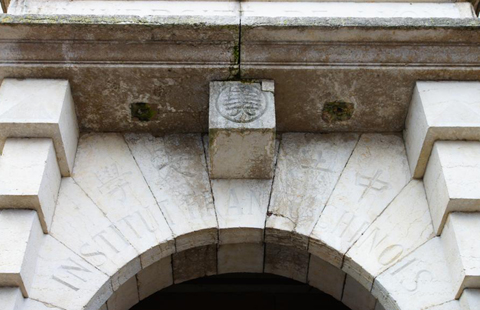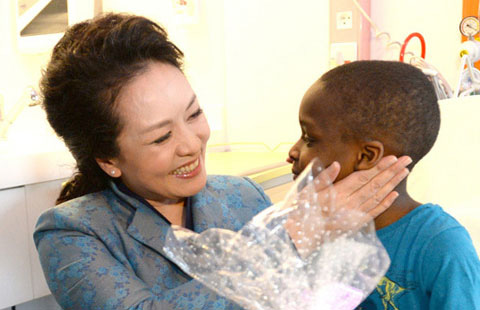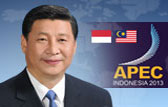EU-China strategic partnership can shape global order: Van Rompuy
Updated: 2014-03-30 03:34
(Xinhua)
Comments Print Mail Large Medium SmallA quarter of all humanity
It has been been 11 years since China and the EU established a comprehensive strategic partnership. Their most recent bilateral plan was the China-EU 2020 strategic agenda for cooperation released at the 16th China-EU Summit last November in Beijing.
Asked how Europe envisioned taking forward the partnership, Van Rompuy said he wanted to "move forward with the implementation of this ambitious agenda and take EU-China relations to a new level over the next decade."
Van Rompuy highlighted that the EU was keen to broaden its strategic partnership with China beyond economic relations, citing examples such as China's constructive role in the EU+3 nuclear negotiations with Iran, as well as China's important contribution to the EU's naval operation against piracy off the coast of Somalia.
"These achievements would have not been possible without a high degree of mutual understanding and trust," he said.
With the EU and China representing over a quarter of the world's population, Van Rompuy believes the most effective way to further increase mutual understanding is to facilitate people-to-people contacts.
"We continue to promote exchanges in the field of culture, education, youth and develop sustainable tourism. Therefore, we also attach a great importance to reinforcing our cooperation on migration and mobility," he said.
According to the EU, six million people are believed to travel every year between the EU and China, three times more than in 2003.
Symbiotic growth plans
As China aims to build a moderately prosperous society by 2020, and the EU works towards its own EU 2020 strategy, Van Rompuy feels the two processes share common ground providing valuable opportunities for EU-China cooperation.
"There are many common features in Europe's growth and job strategy and China's 12th five-year plan -- how to provide first class educational opportunities for our young people, how to encourage research and innovation, how to sustain a clean environment, reduce poverty, ensure effective public service and cut red tape for business," he said.
"In all these areas, we can learn from each other and exchange views on how to achieve our priorities."
Even as new leaders take charge after European Parliament elections in end-May, Van Rompuy said there would be a good deal of continuity in EU-China relations "despite the change of leadership in EU institutions."
"The impact of the elections will be felt more on our internal policies than in the area of external relations," he said. "During my five years of office as president of the European Council, more than half of EU heads of state or government have changed."
Philosophy of integration
Addressing the global influence of EU-China relations, Van Rompuy said the EU-China strategic partnership can play an important role in shaping the global order.
"Both the EU and China are strong supporters of a multilateral system, where the United Nations occupies a central role. It is in our shared interest that all players follow international law and address differences through diplomacy and dialogue," he said.
The basic philosophy with regard to European integration, he said, has been the following: by giving up some of your national sovereignty, you will actually regain more sovereignty.
"The same philosophy largely applies to international cooperation. Working constructively together for the global good, we can achieve much individually. Sometimes countries disagree, or compete in certain areas, but in the end they are aware that they better choose the path of cooperation over rivalry," Van Rompuy said.
"It's win-win diplomacy, as you call it in China," he said.







